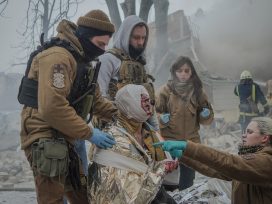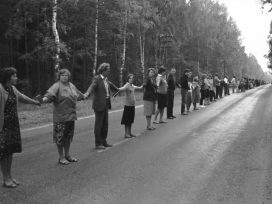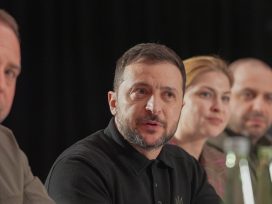The silent colonization of Crimea
How Russia exerts control in the annexed territories
With every step taken by the Russian authorities, the reintegration of Crimea into Ukraine becomes ever more difficult. How can Ukraine claim back rights to a territory that citizens of another country de facto own?
On March 20th 2021, decree number 201 of the President of the Russian Federation came into force. According to this ruling, the majority of the Crimean Peninsula, around 80 per cent of the territory – only excluding a few municipalities and a small part of the city of Sevastopol – is gaining the status as a border territory of the Russian Federation. This decree might well be the final nail in the coffin of Ukrainian Crimea.
In effect, the decree will lead to a situation that for those Ukrainians and Crimean Tatars who, after the annexation, refused to give up their Ukrainian passports for Russian ones, have become foreigners in their own land, and are now at risk of being expelled from their homes. According to the Russian decree, foreign citizens and legal entities, as well as stateless persons, do not have the right to own property situated on border territories.
‘Foreigners’ (i.e. Ukrainians) owning an estimated 10,000 land plots were obliged to sell or gift their properties within a year after the decree was signed. According to the Donbas and Crimea: Legal Un/Certainty project, if foreign owners fail to do so before the deadline date, a court decision will transfer the property to another person. According to experts from the Un/Certainty project, this move by the Russian authorities can be classified as a war crime under the Rome Statute of the International Criminal Court, and it breaches multiple international conventions.
Forced choices
Imagine you are a Crimean Tatar living with your family of five in a house somewhere around Bakhchysarai, your ‘historic homeland’ for centuries. This house is the only roof over the head of your family; and out of fear of prosecution or maybe because of solid political convictions, you opted out of a Russian passport in 2014. Or if you are a Ukrainian living in Kyiv but you inherited your grandad’s dacha around Alushta, where you spent every summer of your childhood. In either case, you are the object of the decree. You must get rid of your land or the government will do it for you.
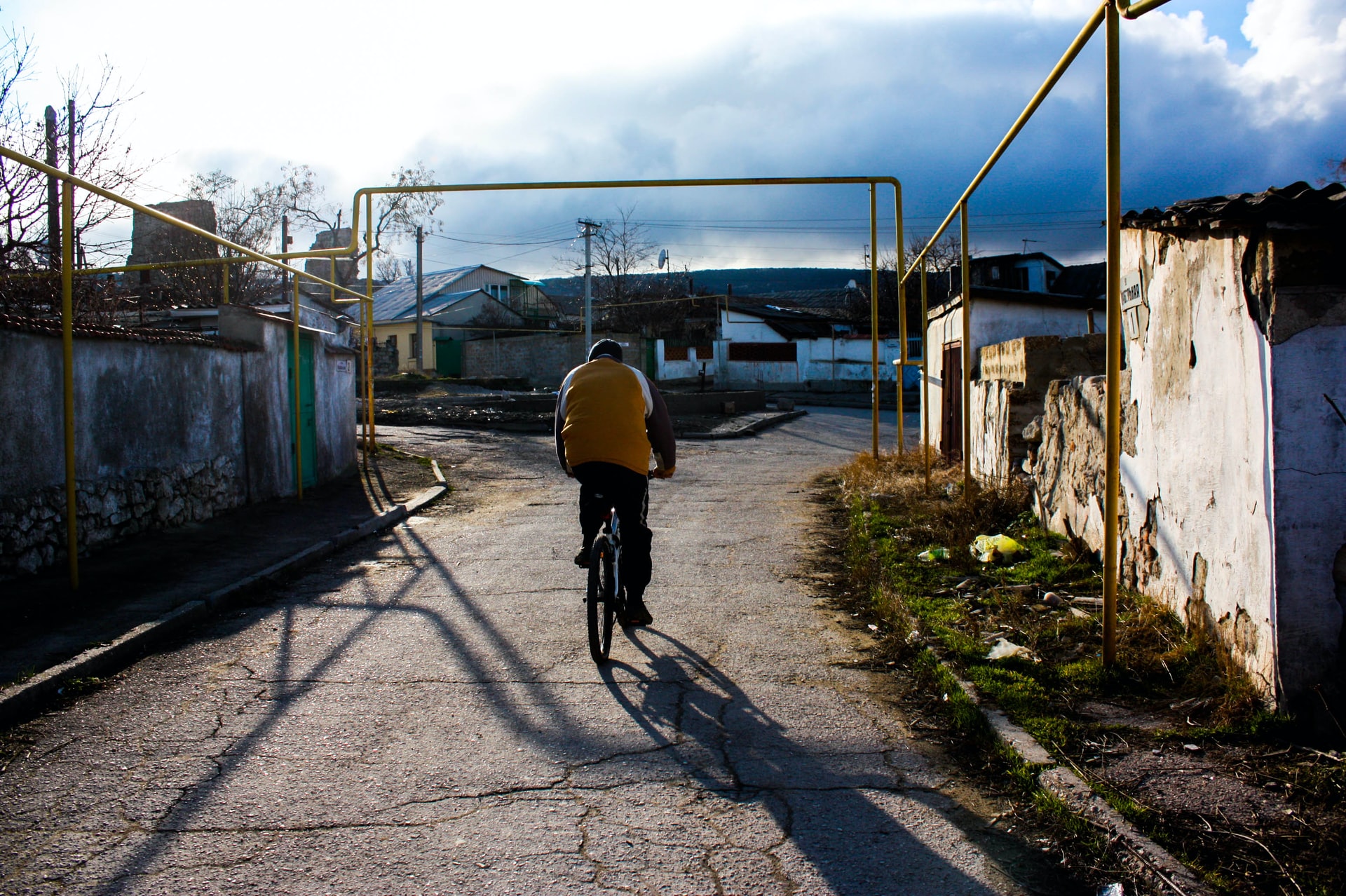
Feodosia,Crimea. Photo by Francisco Rioseco on Unsplash.
Legal experts have recommended filing a lawsuit before the European Court of Human Rights. Unfortunately for many ordinary citizens, this sounds like a joke. Doing so would require hiring lawyers who specialise in human rights and undertaking a legal process that is likely to last much longer than a year – after which the deadline would have passed. And there is no guarantee these proceedings will end with a ruling.
In light of this, what, if any, options do these ‘foreigners’ have? Sadly, very few. If it is not your only home, you could sell the land plot with the house to a Russian citizen – take the money and forget about taking holidays in Crimea again. But if this is your only home and you do not want to leave it behind (besides having nowhere else to go), you could in theory rent your former property, living there while paying rent to the new owners. Those are the only options Ukrainian lawyers are recommending on the record.
Off the record, however, in order to keep your home and not pay anything extra, you can either re-register the property in the name of a relative with a Russian passport or get a Russian passport yourself. You could also opt for the ‘wait and see’ option, doing nothing and hoping for better times to come. Unfortunately, you are likely to find your summer house bulldozed off the face of the earth, or new owners moving in.
Thus, the various options on the table almost succeed in creating the illusion of having a free choice. It is an illusion because no matter which option you take, the result is the same: the Russian Federation will own close to 100 per cent of Crimean land. The evil genius of the Russian government’s plan is that, no matter what you do, they always win.
Further russification
The legal term jus soli (right of soil), applied in some jurisdictions, means the right of anyone born in the territory of a state to its nationality. The Putin regime, however, is reversing this rule in Crimea: the right to territory stems from nationality. A Russian from Moscow, for instance, now has all the rights to Crimean land should she or he want to retire there. Yet a local Crimea non-Russian resident will have to either leave or accept Kremlin rule. Many commentators refer to what is happening in Crimea as a type of colonization.
Even though Putin’s decree targets only around 10,000 land plots, probably concerning around 10,000 families (not too many in the grand scheme of things), this is not the first but an essential step in the process of Crimea’s Russification. According to Anton Korynevych, the Permanent Representative of the President of Ukraine in the Autonomous Republic of Crimea – an institution that, like many others, operates in exile – Russia has already resettled over 300,000 of its citizens to the annexed peninsula. He adds that the new settlers are often Russian officials, law enforcement officers and those loyal to the regime.
Simultaneously, Ukrainian and Crimean Tatar journalists, public figures and others who do not recognise the annexation are being pushed out. Korynevych calls this process a new form of colonization, one which is changing the demographic composition in order to increase the percentage of residents whose loyalties lie with Russia.
Another backdrop to this, according to Korynevych, is Russia moving Ukrainians from Crimea to the Russian mainland and carrying out what he calls a forceful ‘passportization’ of Ukrainians in Crimea. In an official statement Nabila Massrali, the spokesperson for foreign affairs and security policy of the European Union, has called Putin’s decree ‘another step towards the imposition of Russian citizenship on the peninsula’. That is not to mention that the decree effectively prevents Ukrainians from mainland Ukraine from moving to Crimea.
Unless you live in Crimea, chances are this is the first time you have heard about the issue. It has barely caught the attention of Ukrainian media, let alone international media. Even my Crimean friends living in mainland Ukraine have not heard much about it. Why is this? First, the timing was right. The decree was out in late March 2020, when the world was under the first lockdown due to the COVID-19 pandemic. Everyone was focused on stories related to coronavirus and had immediate concerns to think about. There was little interest in anything else, much less a decree on Crimea.
International media seem to have forgotten about the issue, since after seven years it is old news. International politicians, allies of Ukraine, did of course issue a short statement of condemnation of Russia’s actions, like the above-mentioned EU spokesperson.
However, as Ukrainians who find themselves in crises often joke: ‘all the EU can do is be deeply concerned’. Concrete actions, in other words, are rarely to be counted on. Yet how can one blame them? Even Ukrainian politicians and the Ukrainian public seem to have accepted the status quo.
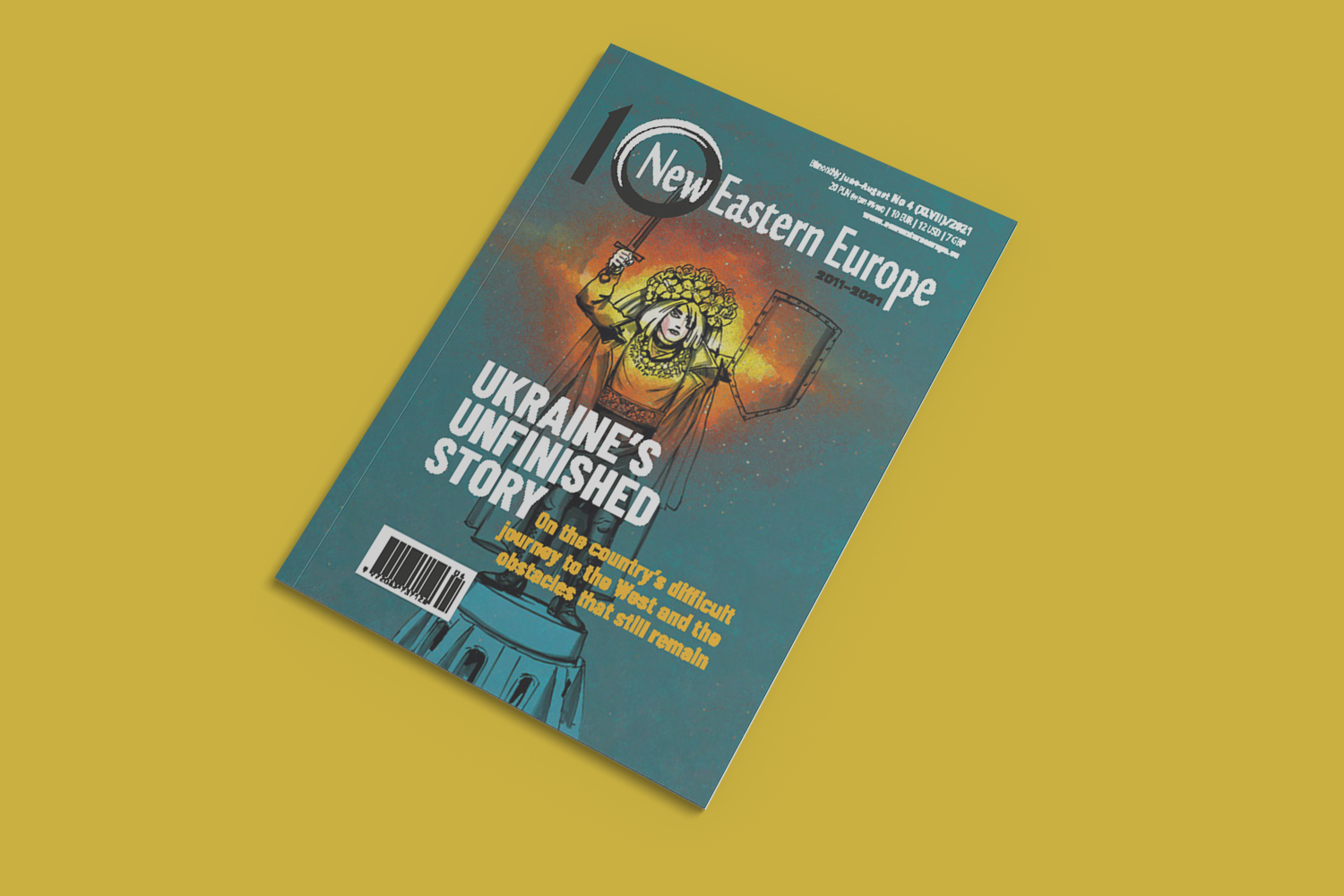
This article was first published by our Polish partner journal New Eastern Europe. Their 2021 Summer issue is dedicated to Ukraine, on topics such as the geopolitics of gas, and Odessa’s urban mismanagement. Read our review of the issue here.
Another reason why the timing of the decree is important are the pandemic travel restrictions were put into place. Even if you wanted to deal with the situation, you would have to deal with the courts in Crimea and the de facto local authorities. If one resides elsewhere in Ukraine, this is not so easy. Both sides have restricted travel.
What is more, postal services from Ukraine to Crimea are currently suspended. Even if you manage to smuggle documents through, the courts might not trust a document sent ‘from Crimea’ while the applicant resides elsewhere. To get anything done, you would need to hire a local lawyer proficient in Russian law. Concluding any legal documents or agreements on Crimea while being situated in Ukraine is virtually impossible; no notary in Ukraine can accept a document with an address reading ‘Crimea, Russian Federation’.
Mental insecurity
Apart from all the technical issues that those with property in Crimea face due to the legal grey zone that the annexation has created, there is another set of problems embodying the guilty consciousness of the unfortunate landlords. When speaking to people in such a situation, I gathered that the dilemma they face is as follows: to stay fully in the right and abide by Ukrainian law, and not implicitly recognise Russian rule over Crimea, you need to only follow Ukrainian law when dealing with matters concerning Crimea.
Yet in practice, to get anything done in Crimea, you need to follow Russian law. Hence, Ukrainian landowners feel cornered. They are forced to choose a lesser evil. Is it a lesser evil to sell land you rightfully own, saving your personal wealth but contributing to the irreversibility of colonization? Or is it a lesser evil to pay rent to an occupying state to live in a house you built with your own hands, or to accept its citizenship?
Many Ukrainians, however, do not have time for those dilemmas as they are consumed with panic and confusion. In a situation of panic, many will sell cheap and fast. Nevertheless, old-school feudal warfare for land continues, but it is now disguised behind consumerist free market attributes.
In the contemporary liberal world, Stalinist resettlements and population replacements are long forgotten. Technically, no one is forcing anyone to move. Why shouldn’t a Ukrainian just sell and move to mainland Ukraine since private property in Crimea seems to be under constant threat?
And, of course, you can see the appeal to wealthy residents who live in the cold and rainy city of St Petersburg, jumping at the opportunity to purchase one of the 10,000 available plots in Crimea under market value. When asked by Krym.Realii why such a decree was signed after all these years, Roman Martynovskiy, a lawyer of the Regional Centre for Human Rights, suggested that in the previous years, Russian authorities were busy confiscating land by other means. But maybe it took time for the Kremlin to create a mental image of security for Russian citizens, by investing in it and making Crimea an attractive relocation target.
The Crimean bridge is open and Crimea now is linked to Russia. Most Russians no longer need to doubt – rephrasing the propaganda slogan – that Crimea is theirs.
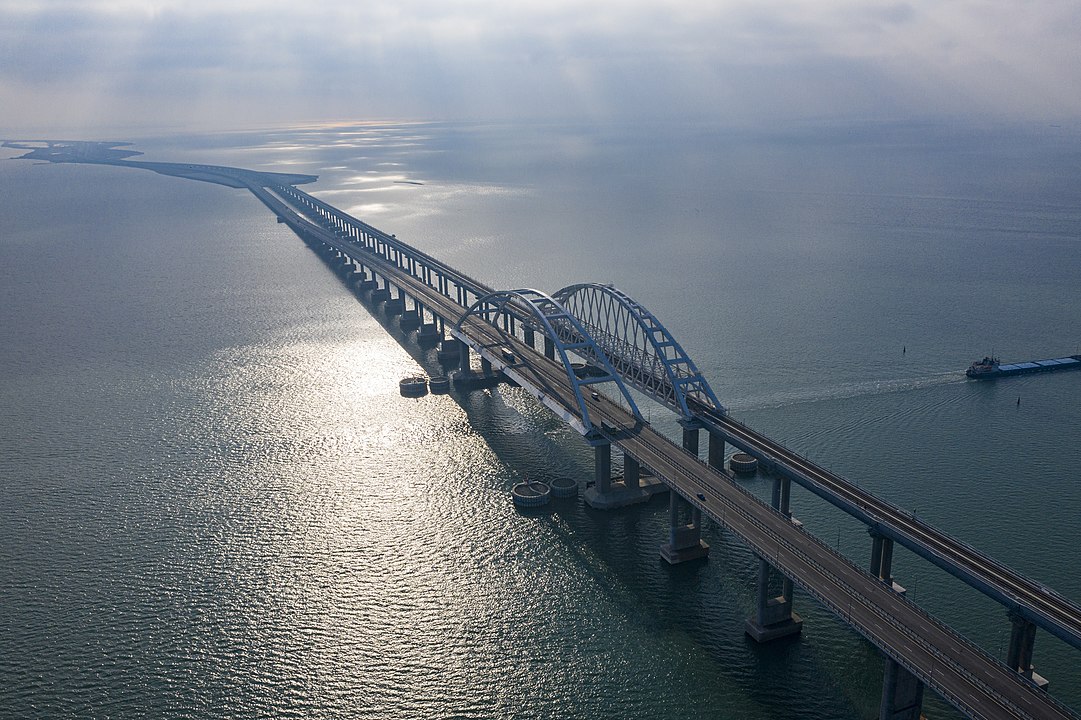
Bridges with Russia are not only metaphorical: the 17 kilometers long Crimean Bridge, inaugurated by Russian President Vladimir Putin in 2018, connects the Taman Peninsula and Crimea. Photo by Rosavtodor.ru, CC BY 4.0, via Wikimedia Commons.
A catastrophe
While the dogs may bark about non-recognition, the train keeps moving. With every step, the reintegration of Crimea into Ukraine becomes more difficult. How can Ukraine claim a right to territory that citizens of another country de facto own? How can Crimea ever want to reintegrate into Ukraine if many of its residents have already migrated and its new existing residents are Russian citizens?
Rafat Chubarov, chairman of the Mejlis of the Crimean Tatar People, who, like many other Crimean Tatars, effectively lives in exile since the annexation, in his interview with Krym.Realii described Putin’s decree as a catastrophe. He says the decree solves two problems for Russia. The first is pushing out the Crimean people believed to have ties to Ukraine. The second is the total redistribution of land. He suggests that giving Crimean land to new settlers from Russia is another element of the colonization of Crimea. He sees these actions as a means of impeding the restoration of the sovereignty of Ukraine over Crimea.
Already in 2015 Dmitry Medvedev declared that Crimea has been fully integrated into Russia. However back then, many in Ukraine did not see it as crossing the Rubicon and hoped that, one day, Crimea would ‘come back home’. But once Putin’s decree is fully implemented, this could be the point of no return.
Research for this article is part of a project that has received funding from the European Union’s Horizon 2020 research and innovation programme under grant agreement No. 765224.
Published 16 August 2021
Original in English
First published by New Eastern Europe
Contributed by New Eastern Europe © Olena Yermakova / New Eastern Europe / Eurozine
PDF/PRINTPublished in
In collaboration with
In focal points
Newsletter
Subscribe to know what’s worth thinking about.
Related Articles

Ukraine faces its greatest diplomatic challenge yet, as the Trump administration succumbs to disinformation and blames them for the Russian aggression. How can they navigate the storm?

Mineral rush
Topical: Critical raw materials
Why does peace in Ukraine hang on a ‘mineral deal’ whose handling is more reminiscent of trade than negotiations? Perhaps because the global race for critical raw material mining is well and truly underway, digging for today’s equivalent of gold: raw earth elements and lithium critical for renewables and digital technology but also modern weaponry.




